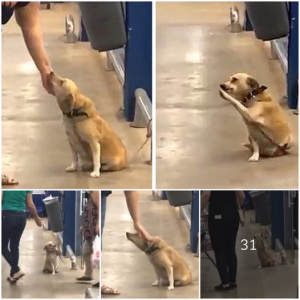The sorrow of losing a beloved canine friend is an experience that touches the hearts of many dog owners. When a furry companion becomes an integral part of your life, their passing can be emotionally overwhelming. In this article, we delve into the intricate realm of canine grief, helping pet parents navigate this challenging journey.
Coping with the Loss of a Cherished Best Friend
The bond between a dog and its owner is unique, characterized by loyalty, companionship, and unconditional love. As our loyal companions, dogs weave their way into our lives and leave indelible imprints on our hearts. When they depart, the depth of our grief can be profound.
The Emotional Impact of Losing a Canine Friend
Grieving for a beloved canine friend is a process that varies from person to person. Understanding this process is crucial for healing and finding solace. It’s essential to remember that the grieving process is natural, and there is no one-size-fits-all approach.
Navigating the Stages of Canine Grief
- Denial: The initial stage often involves denial and disbelief that your faithful companion is truly gone. It’s common to expect them to come bounding around the corner or greet you at the door.
- Anger: As the reality sets in, anger can surface. You might find yourself questioning why this happened or feeling angry at the circumstances.
- Bargaining: In this stage, you may attempt to strike a deal with a higher power, pleading for your dog to return or for things to have been different.
- Depression: This phase can bring profound sadness, loneliness, and a sense of hopelessness. The absence of your loyal friend becomes more pronounced, leading to emotional lows.
- Acceptance: Finally, acceptance arrives as you come to terms with the reality of your dog’s passing. You begin to cherish the memories and the love you shared.
The Healing Process
While grief is a personal journey, there are several strategies that can aid in the healing process:
- Seeking Support: Reach out to friends, family, or support groups who understand your pain. Sharing your emotions can be comforting.
- Honoring Their Memory: Creating a memorial or tribute in your dog’s honor can be therapeutic. This might involve planting a tree, making a scrapbook, or contributing to a pet charity.
- Allowing Time: Grief does not have a timeline. Give yourself permission to grieve at your own pace.
- Consider Professional Help: If your grief becomes overwhelming and affects your daily life, consider seeking support from a therapist or counselor.
The Importance of Self-Care
It’s essential to take care of yourself during this challenging time. Proper nutrition, regular exercise, and sufficient rest are crucial for managing grief effectively. Additionally, surrounding yourself with a support system can be immensely comforting.
Conclusion
Grieving the loss of a beloved canine friend is a process that takes time, patience, and understanding. The profound bond we share with our dogs leaves a lasting impact on our lives, and their memories will always hold a special place in our hearts. While the pain of loss may never completely subside, it can be transformed into a celebration of the beautiful moments shared with your faithful companion. In time, the sadness can give way to gratitude for the love and companionship they provided during their time by your side.
Video:










